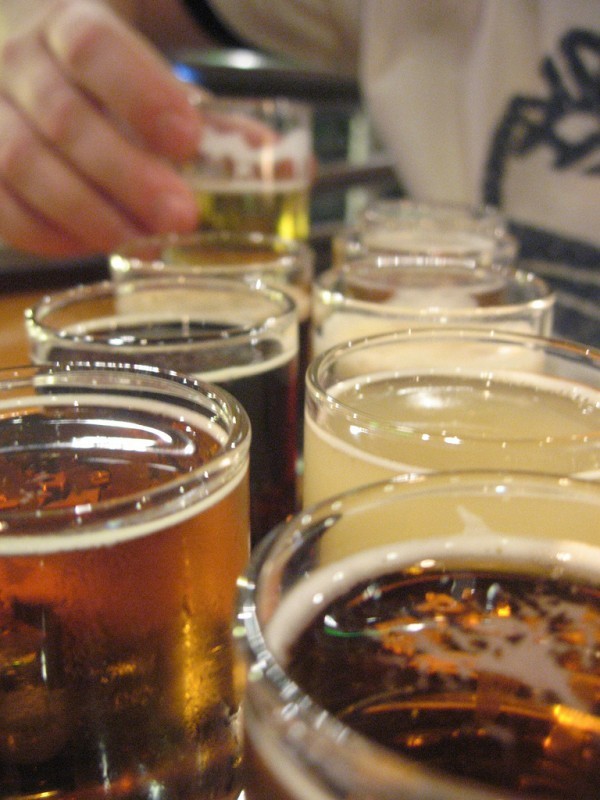A bill in Florida that would make small brewers sell their own bottled or canned beer to distributors and then buy it back even though the beer would never leave the premises created a national stir involving the “three-tiered” distribution system in that state.
But by the end of the spring legislative session, members of the state House made sure the bill fell flat after it passed the Senate 30-10. A companion bill to the Senate bill was never introduced for a vote in the House.
Florida, like every other state except Washington, has a three-tier system for distributing alcohol that includes producers, distributors and retailers. The producers may not own the distributors and neither the producers nor the distributors may own the retailers. In addition, a producer must sell its products to distributors who then sell them to retailers.
At issue was how craft brewers are allowed to sell their beer on their own premises and what must be shipped to distributors in a complicated distribution system that has carved out some exceptions for breweries.
Exception for Busch Gardens
Sen. Kelli Stargel (R-Lakeland) sponsored Senate Bill 1714 requiring craft brewers to sell their beer to a distributor and buy it back even if the beer stays at the brewery. She said an exception was made years ago for the Busch Gardens theme park, which brews beer on site, so it could sell its beer at that venue. Anheuser-Busch, which started Busch Gardens, is the largest brewer in the United States. Blackstone Group bought Busch Gardens in 2009. Stargel said the craft industry has thrived under that Busch Gardens exception.
“It was never anticipated they would sell all their packaged products outside of the three-tiered system,” Stargel said.
Rep. Dana Young (R-Tampa) said she worked hours on the bill shortly before the end of the session to try to salvage it for the House to vote on. Young has a reputation as a defender of Florida’s small breweries.
She told the Tampa Tribune newspaper Stargel “asked for my help, agreed to every suggestion, and then ignored 95 percent of what I suggested.”
Some producers were concerned that if they have to move their bottled beers through a wholesaler they may not be able to get their beer back because it’s made in small batches and limited in supply, she said. To remedy that, Stargel put a provision in SB 1714 allowing breweries to keep their bottled beers on the premises, but still have to go through the process of purchasing it from the wholesaler.
“Florida law requires vendors purchase their beer from a wholesaler,” Stargel said. “My goal was to allow brewers with vendor licenses to have an easier time getting their beer from the wholesaler, but maintaining the exception for beer sold on tap or in growlers.” Growlers are large refillable containers often used for carry out.
Eric Criss, president of the Beer Industry of Florida, Inc., said his organization worked on removing the provision that requires breweries to have to buy their own bottled beer back for resale, which would raise its price.
‘Deterrent to Excessive Promotion, Consumption’
Mitch Rubin, executive director of the Florida Beer Wholesalers Association, called the three-tiered system the “societal choice” on how alcohol and cigarettes are sold in the U.S. “The three-tier system provides for orderly markets, efficient and transparent tax collection and helps deter excessive promotion and consumption.”
“Can you buy cigarettes directly from Phillip Morris in Florida?” Rubin asked. “It’s required you buy tobacco from retailers. The Legislature doesn’t want direct sales from manufacturers to consumers in competition with retailers who are selling cigarettes. Ditto for alcoholic beverages.”
Rubin says there was a misunderstanding about SB 1714’s exception for “come to rest” for breweries with retail licenses. “Come to rest” is the expression for the legal requirement that beer stop at a distributorship to make certain the beer being shipped matches the paperwork for inspection and tax purposes.
He said distributors and retailers are okay with breweries being able to sell their beer for on-premises consumption as well as in growlers without having to go through a distributor. The exception from “come to rest” is in the law and was in the bill so that brewers may move their beer from the licensed brewery portion of the premises to the licensed retail portion of the premises, said Rubin.
“But if a brewery or brew pub wants to sell cans or bottles, it should have to go through a distributor and receive product like all other retailers. When a brewery places an order for beer, it would buy cans or bottles of beer, including any beer it may have produced, from the distributor as required under the three-tier system. I expect the bill will be amended to clarify the proper procedure,” said Rubin.
‘Wholesalers Have Stranglehold’
Michelle Minton, the Competitive Enterprise Institute’s Fellow who specializes in alcohol regulation, said although all the states but Washington have a “three-tiered” system for alcohol distribution, the exceptions allowed can vary from state to state.
Minton said the controversy surrounding SB 1714, which would have had breweries buying their own bottled beer back without it even leaving their premises, “really highlights the stranglehold that wholesalers have over the regulatory process of beer sales” in Florida.
If craft brewers want to grow their business outside of their state, they still need wholesalers, Minton said. She said wholesalers provide the trucks as well as the connections to bars and restaurants to get the beer sold in the retail market.
But Minton said the decision to use wholesalers should be voluntary. That would introduce a lot of competition and lower prices for consumers, she said.




